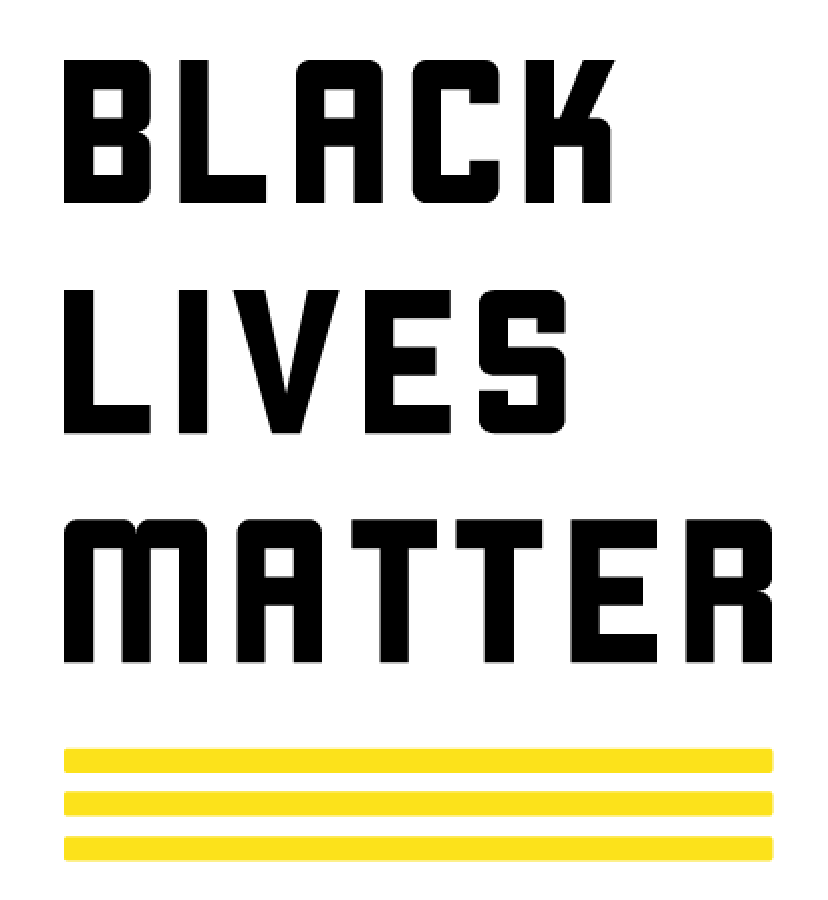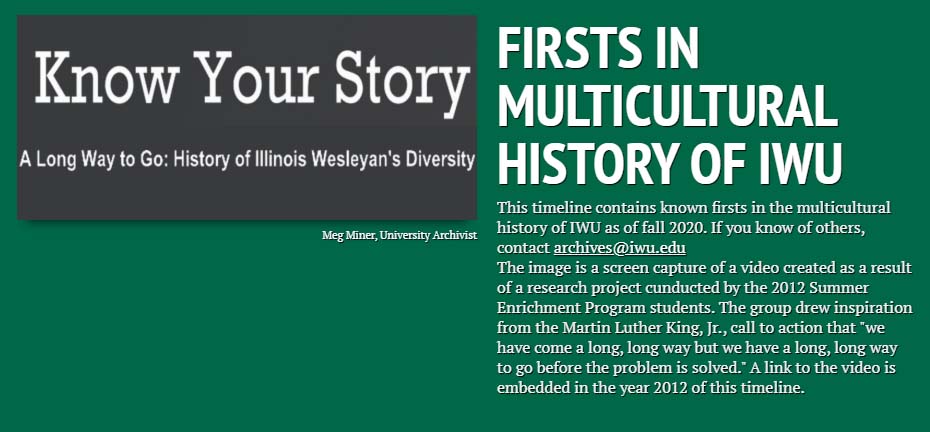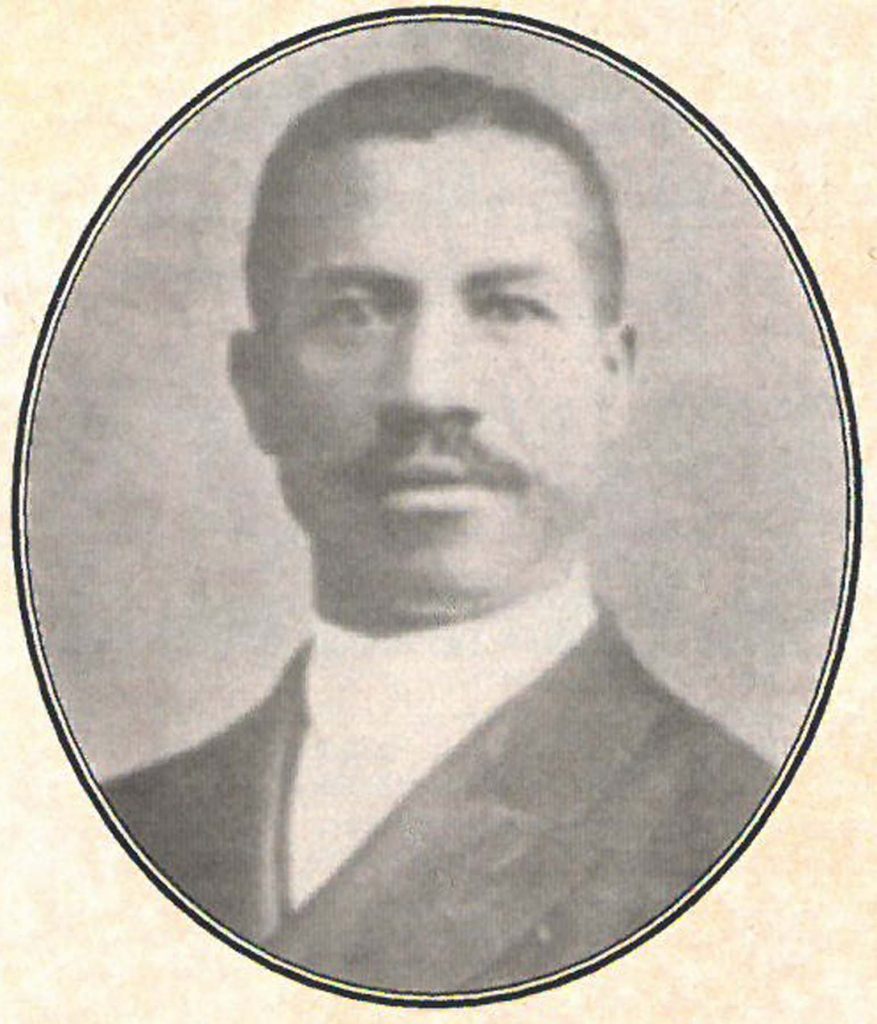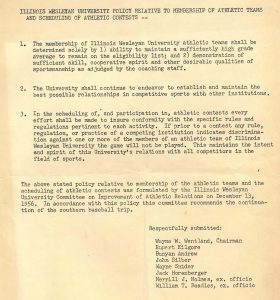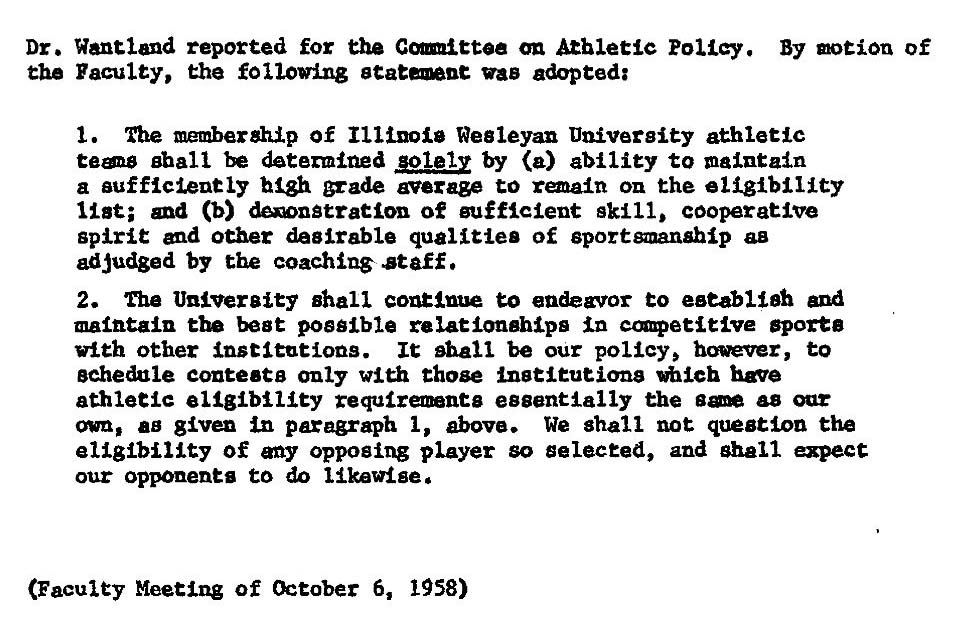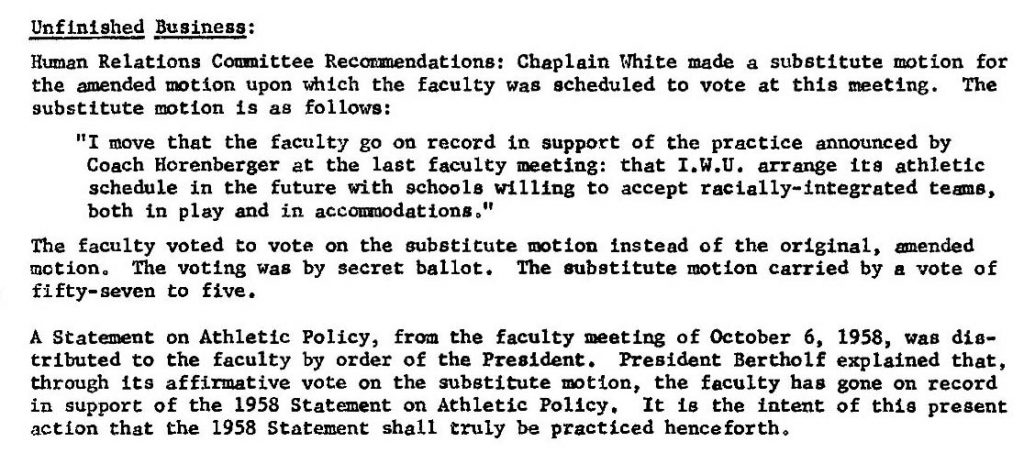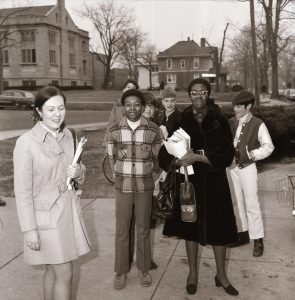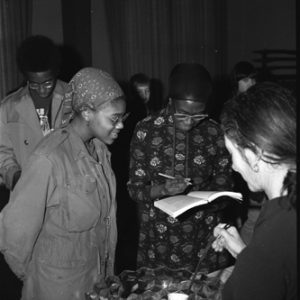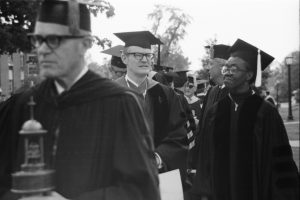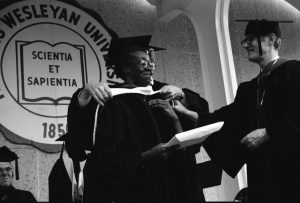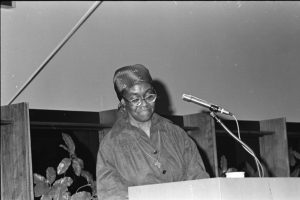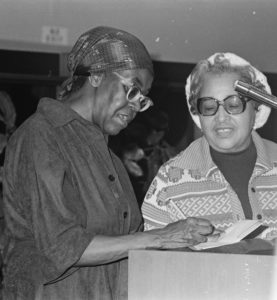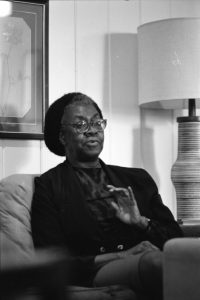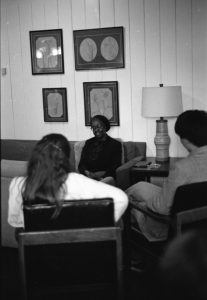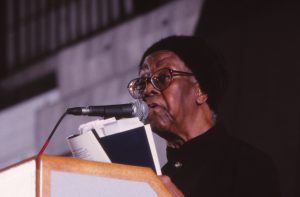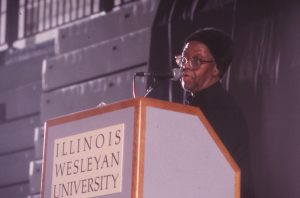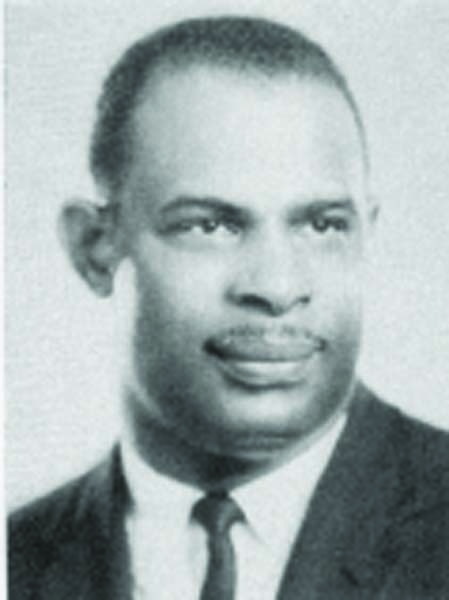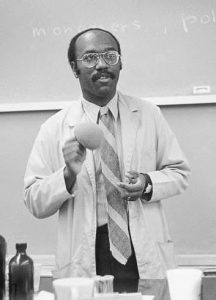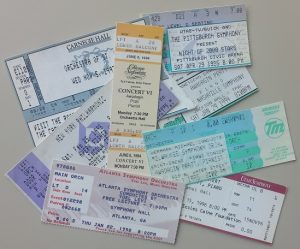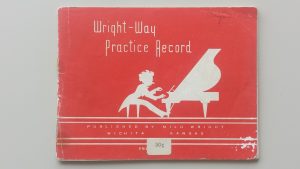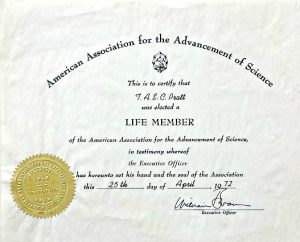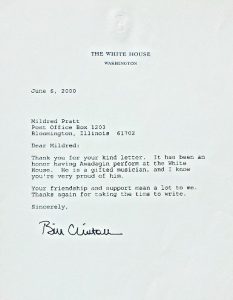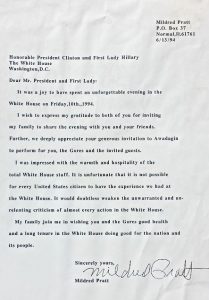In an earlier post, we documented the first African-American men to graduate from IWU. Recently I came across an unknown author’s work on the subject of Black student history at IWU (this document is contained in Record Group 11-8/1/6). That author listed Josephine Mabel Jackson, Class of 1910, as IWU’s first African-American woman to graduate. There is no supporting documentation in the University Archives about the race of our students, but we can look elsewhere to confirm this particular claim.
With her name, I was able to ask the Illinois Regional Archives Depository staff for help. A birth registration book confirms that she was born on January 22, 1886 in Delavan, Tazewell County, Illinois, and lists her race as Negro. The entry also shows that her father William W. Jackson, from South Carolina, was a barber. Her mother Dora M. (nee Grady) Jackson was from Mississippi.
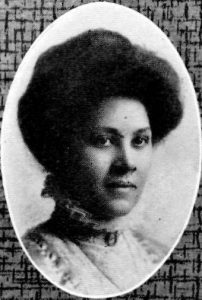
Jackson, 1909 Wesleyana
The photo to the left is our first image of her, where she is pictured among her Junior classmates. Only one source mentions she was involved in the YWCA but a few show that she participated in the Adelphic Society, one of the two literary societies on campus in her day.
No records of that group’s activities exist for this era but according to the 1907/08 Catalogue of Courses, students were advised to join such groups because “there is no single factor in college life that does so much to fit them for speaking in public and learning to think while in the act of speaking.”
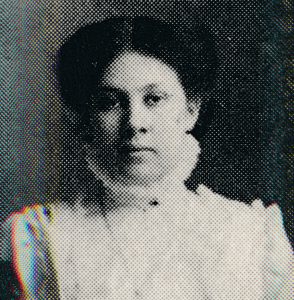
Jackson cropped from Adelphic group’s photo in 1909 Wesleyana
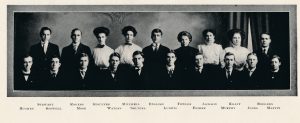
Adelphic Society members, 1909 Wesleyana
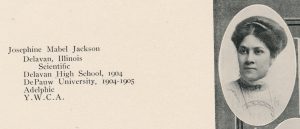
Jackson’s Senior class photo from the 1911 Wesleyana
In the list of graduates published in the June 14, 1910 Argus, her full name is given as Josephine Mabel W. Jackson. There are no documents here that record her thoughts about her life but there are several indications that she remained connected to IWU after graduation. In one case, published by the Alumni Office among their brief class news reports, she sent a donation and greetings.
A brief note in April 1925 is the most substantive report there is on an important event in her life: the death of her mother. It ends with an enigmatic sentence: “Miss Jackson has been an unusually successful science teacher in various High Schools.”
A 1929 book called The Alumni Roll at least confirms the teaching part:
Jackson, Josephine M., B.S. Graduate Chicago Training School, 1911, Teacher in High School, Harlan, Iowa; 1912-1913, Chicago Training School; Industrial teacher in Institutional Church, Chicago; Evangelistic work; Teacher; Student at State University of Iowa. Box 67, Delavan, Illinois.
The last picture we have of her comes from a June 1960 alumni news source:
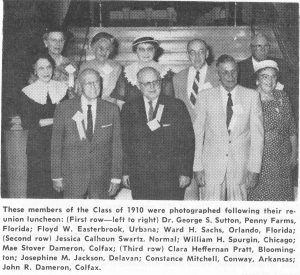
June 1960 IWU Bulletin, Alumni edition
The last time Miss Jackson is mentioned in any of our publications is in September 1968. Bloomington’s Pantagraph says she died, aged 88, on Tuesday June 18, 1974 at Hopedale Medical Complex. The notice states she had been in the Hopedale Nursing Home “for some time.” (subscription needed to access: Wednesday, June 19, 1974 – Page 47).
I am sure there is more to be learned about Josephine Jackson’s life. Readers are invited to stop in and see the newly accumulated references to her in the University Archives. I would be happy to make suggestions for additional research strategies, and will gladly add more to her files with anything new that’s discovered!
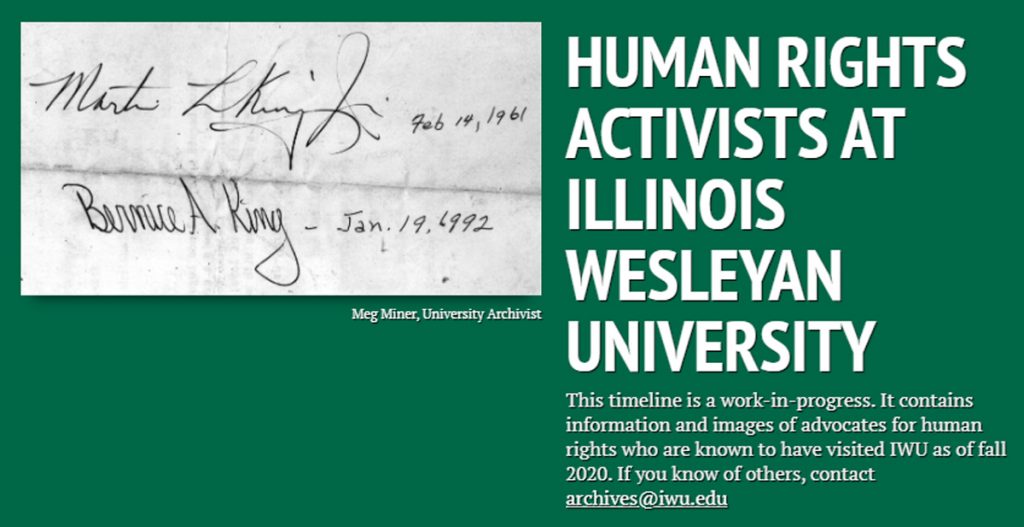 For quite some time I have marveled at all the prominent human rights speakers who have visited campus. I’ve done physical exhibits in the library on this topic but have also wanted to be able to share this information online and, hopefully, reach a wider audience. This timeline contains a compilation of my research on the topic.
For quite some time I have marveled at all the prominent human rights speakers who have visited campus. I’ve done physical exhibits in the library on this topic but have also wanted to be able to share this information online and, hopefully, reach a wider audience. This timeline contains a compilation of my research on the topic.

